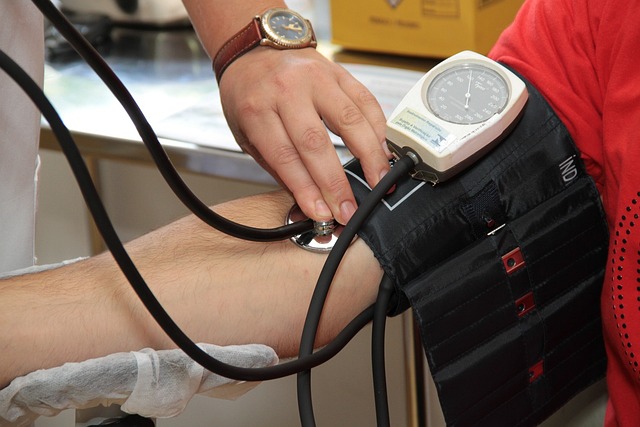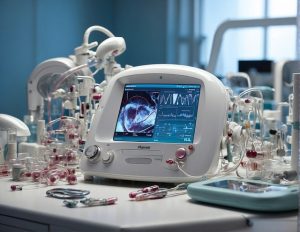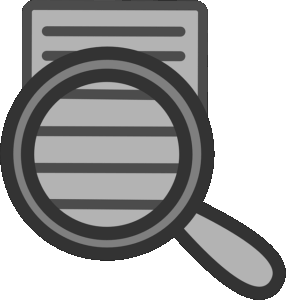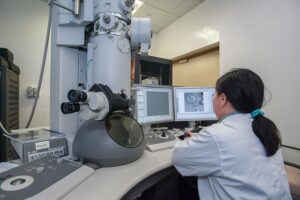Navigating Language Hurdles: The Essence of Certified Medical Record Translation in UK Healthcare
The Medical Record Translation UK services play a pivotal role within the National Health Service (NHS) and private healthcare facilities across the United Kingdom. These services ensure that foreign medical documents are accurately translated into …….

The Medical Record Translation UK services play a pivotal role within the National Health Service (NHS) and private healthcare facilities across the United Kingdom. These services ensure that foreign medical documents are accurately translated into English by certified professionals who possess both linguistic expertise and specialized knowledge of medical terminology, thereby upholding patient safety and facilitating informed healthcare decisions. The translation process adheres to strict legal requirements, including compliance with GDPR, to protect patient confidentiality and privacy while also accounting for cultural nuances that can affect the interpretation of medical terms. This critical function is essential for providing high-quality, inclusive care to a diverse population and for maintaining the integrity of the healthcare system in the UK. The accuracy and reliability of certified translations are paramount in bridging language barriers and enabling healthcare providers to deliver effective, patient-centered care with the highest standards of safety and quality.
Navigating the complexities of healthcare, particularly when language barriers are present, is a critical aspect of patient care. In the UK, where diversity is a cornerstone of society, the necessity for precise and certified medical record translation cannot be overstated. This article delves into the pivotal role that professional translations play in cross-border healthcare, emphasizing the legal requirements and best practices within the UK’s National Health Service (NHS). We explore the intricacies of the translation process, ensuring quality and compliance to protect patient privacy and improve care outcomes. From identifying a trustworthy service provider to leveraging technology for enhanced accuracy, this piece outlines the challenges and solutions in medical document translation, highlighting case studies that underscore its impact. Additionally, it addresses cultural considerations and training essentials for translators, ensuring that every patient receives healthcare information that is both accurate and appropriate. Finally, we look ahead to the future of medical record translation, considering the trends and developments shaping this vital field in the UK.
- Understanding the Necessity for Certified Medical Record Translation in the UK
- The Role of Accurate Translations in Cross-Border Healthcare
- Navigating Language Barriers: The Importance of Precision in Medical Documentation
- Legal Requirements for Certified Medical Translations in the UK Healthcare System
- Identifying a Reliable Translation Service Provider for Medical Records
- The Translation Process: Ensuring Quality and Compliance
- Common Challenges in Translating Foreign Medical Documents
- Protecting Patient Privacy During Medical Document Translation
- The Impact of Certified Translations on Patient Care Outcomes
- Case Studies: How Certified Translations Have Facilitated Healthcare Services in the UK
Understanding the Necessity for Certified Medical Record Translation in the UK

In the UK’s multicultural society, the necessity for medical record translation services is paramount to ensure effective communication and patient care. With a diverse population that includes patients who may not speak English as their first language, healthcare providers must navigate the complexities of language barriers. Certified medical record translation in the UK transforms critical health information into understandable formats for non-native speakers. This process is not merely about linguistic conversion; it is a safeguard that protects patient safety and promotes informed decision-making. Translators with expertise in both the source and target languages, along with a comprehensive understanding of medical terminology, are essential to this task. They meticulously render documents such as patient records, prescriptions, and clinical trial results with precision and cultural nuance. The UK’s National Health Service (NHS) and other healthcare entities rely on these translations to be legally binding, adhering to strict standards set forth by the NHS and the UK’s Medicines and Healthcare products Regulatory Agency (MHRA). This reliance underscores the critical role of certified medical record translation in upholding patient care excellence and maintaining the integrity of healthcare services within the UK.
The Role of Accurate Translations in Cross-Border Healthcare

In the realm of cross-border healthcare, the accuracy and reliability of medical record translation are paramount. The UK’s diverse patient population often requires the services of certified translations for foreign medical documents to ensure continuity of care when patients travel or move within the country. These translations serve as a critical bridge between healthcare providers and patients who speak different languages, facilitating the exchange of essential health information with precision. Medical record translation in the UK is not just about converting language; it’s a process that demands specialized knowledge of medical terminology and cultural nuances to convey meaning accurately across linguistic boundaries. Translators must be adept at interpreting complex medical jargon and translating it into a contextually appropriate equivalent, ensuring that healthcare professionals can make informed decisions based on the patient’s full medical history, regardless of the language in which it was originally recorded. The role of these translations is to maintain the highest standards of care by providing healthcare providers with comprehensive and accurate information, thereby safeguarding patient safety and promoting better health outcomes in a multicultural society. The UK’s commitment to high-quality medical record translation services is a testament to its dedication to inclusive and effective cross-border healthcare practices.
Navigating Language Barriers: The Importance of Precision in Medical Documentation

Navigating language barriers in healthcare is a critical issue, particularly within the UK’s diverse society. Accurate medical record translation in the UK is not just a matter of communication but a question of patient safety and the integrity of treatment plans. With an influx of patients from various linguistic backgrounds, healthcare providers must ensure that the nuances of medical terminology are conveyed precisely across languages. This is where certified translations of foreign medical documents become indispensable. These translations, provided by professionals trained in both language and medical science, bridge the gap between providers and patients who speak different languages. The precision required in these translations is paramount; a misstep could lead to misdiagnosis or incorrect treatment, with potentially grave consequences for patient health. Medical Record Translation UK services are equipped to handle this sensitive task, employing expert linguists and medical professionals who understand the gravity of their role in maintaining the quality of care across different languages. Their work not only facilitates better patient outcomes but also supports the provision of informed consent, which is a cornerstone of ethical healthcare delivery. Ensuring that every patient, regardless of their nationality or mother tongue, receives care tailored to their needs is a testament to the UK’s commitment to inclusivity and excellence in healthcare.
Legal Requirements for Certified Medical Translations in the UK Healthcare System

In the UK healthcare system, the accuracy and legitimacy of medical record translation are paramount, given the sensitive nature of health information. Medical professionals must adhere to strict legal requirements when dealing with foreign medical documents. These translations must be certified to ensure their authenticity and reliability. A certified medical translation in the UK is one that has been performed by a professional translator who is accredited by a recognized authority, such as the Institute of Translation and Interpreting (ITI) or the Chartered Institute of Linguists (CIOL). This accreditation verifies that the translator possesses the necessary expertise to accurately convey medical terminology and context from one language to another. The certification process often includes a statement of accuracy, a signed declaration by the translator, and in some cases, a stamp or embossed seal from the issuing body. This certification is crucial as it confirms that the translated document reflects the original content with complete fidelity, which is essential for healthcare providers to make informed decisions about patient care. Additionally, under the UK’s Data Protection Act and the General Data Protection Regulation (GDPR), all personal data must be handled lawfully, fairly, and transparently. This means that translators must also comply with data protection principles when handling sensitive medical information during the translation process. Ensuring compliance with these legal frameworks is critical for maintaining patient confidentiality and trust within the healthcare system, making certified medical record translation a non-negotiable component of patient care in multilingual environments across the UK.
Identifying a Reliable Translation Service Provider for Medical Records

When healthcare professionals encounter medical records in foreign languages, the accuracy of translation is paramount to ensure patient safety and maintain the integrity of their care. In such instances, opting for a reliable translation service provider that specializes in Medical Record Translation UK becomes essential. The translator should not only be proficient in both the source and target languages but also well-versed in medical terminology to convey complex medical information accurately. A trustworthy service will provide certified translations that meet the stringent standards required for healthcare use, adhering to the General Data Protection Regulation (GDPR) and other data protection laws. They should also be familiar with the Medical Research Council (MRC) guidelines and the National Health Service (NHS) protocols in the UK, ensuring that all translations are contextually appropriate and culturally sensitive. Choosing a service provider with a proven track record in Medical Record Translation UK will guarantee that healthcare providers can rely on precise and trustworthy translations to support patient care and decision-making processes. It is advisable to seek out providers with specific accreditations, such as the Association of Translation Companies (ATC) or the Institute of Translation and Interpreting (ITI), which can be a testament to their expertise in this specialized field. With the right service provider, healthcare organizations can navigate the complexities of international medical records confidently, ensuring high-quality care for all patients regardless of their linguistic background.
The Translation Process: Ensuring Quality and Compliance

In the domain of healthcare, where precision and accuracy are paramount, the translation of medical documents is a delicate task that demands high-level expertise. The process of translating medical records in the UK, termed Medical Record Translation UK, involves meticulous attention to detail to ensure that every nuance and medical term is accurately conveyed in the target language. Certified translators who specialize in this field are not only linguistic experts but also possess a deep understanding of medical terminology and concepts. They adhere to strict quality standards and follow a rigorous process that includes initial translation, followed by careful proofreading and validation against the source document. This ensures that the translated content maintains its original meaning and intent, critical for informed healthcare decisions and patient safety.
Compliance with legal and professional regulations is an integral part of the medical record translation process in the UK. Translators must navigate the intricate requirements set forth by bodies such as the National Health Service (NHS) and the Information Commissioner’s Office (ICO), which govern the handling and sharing of personal health information. The translations must align with the General Data Protection Regulation (GDPR) and other relevant data protection laws to safeguard patient confidentiality and privacy. Moreover, translators must be adept at utilizing specialized translation software and tools that facilitate the secure exchange of documents while maintaining the integrity of the translated content. This commitment to quality and compliance ensures that healthcare providers can rely on Medical Record Translation UK services to effectively communicate with patients and peers across linguistic barriers.
Common Challenges in Translating Foreign Medical Documents

When it comes to certified translations of foreign medical documents for healthcare use, professionals in the UK face a myriad of challenges that can significantly impact patient care and compliance with legal standards. One of the primary hurdles is ensuring the accuracy and fidelity of the translated content. Medical terminology often encompasses specialized jargon that may not have direct equivalents in other languages, necessitating a deep understanding of both the source and target linguistic contexts. This intricacy is amplified when considering cultural nuances and regional dialects that can alter the meaning of medical terms and phrases.
Another significant challenge is navigating the legal requirements for certification of these translations. In the UK, translations used for healthcare purposes must be certified to be legally recognized and binding. This means that translators must not only be proficient in both languages but also well-versed in the legal framework governing medical document translation within the UK, such as the Medical Record Translation UK guidelines. Ensuring compliance with these regulations is crucial to avoid any legal or ethical issues that could arise from mistranslated information, which could lead to misdiagnosis or incorrect treatment plans for patients. The stakes are high, and translators must approach this task with a combination of linguistic expertise and in-depth knowledge of the medical field and its regulatory environment.
Protecting Patient Privacy During Medical Document Translation

When medical records require translation for healthcare purposes, particularly within the UK, the integrity and confidentiality of patient information are paramount. The process of medical record translation in the UK must adhere to stringent data protection regulations, such as the General Data Protection Regulation (GDPR) and the UK’s Data Protection Act 2018. Certified translators specialising in medical document translation are not only tasked with accurately converting the content from one language to another but also with ensuring that patient privacy is protected throughout this sensitive process. They achieve this by implementing robust security measures, maintaining compliance with healthcare regulations, and operating under a strict duty of confidentiality. Every step, from the initial scanning of documents to the final translation, is conducted within secure environments to prevent unauthorized access to personal health information. This commitment to patient privacy during medical record translation in the UK ensures that individuals’ sensitive health data remains protected, even as it crosses linguistic and cultural boundaries, thereby facilitating seamless and safe healthcare delivery across different regions.
The Impact of Certified Translations on Patient Care Outcomes

In the healthcare sector, the accuracy and reliability of medical record translation are paramount for delivering optimal patient care outcomes. The UK, with its diverse population and extensive international healthcare collaborations, frequently requires certified translations of foreign medical documents. These translations serve as a critical link in ensuring that patients receive safe, high-quality healthcare services. Certified translators, who are proficient in both the source and target languages, play an essential role in this process. They meticulously translate medical records, including patient histories, medication instructions, and treatment protocols, transforming them into precise, understandable text in the UK’s official language. This translation precision directly impacts patient care by reducing miscommunication and errors that could arise from linguistic barriers, thereby enhancing the effectiveness of healthcare interventions. The use of professional medical record translation services in the UK is a testament to the country’s commitment to inclusivity and patient safety. It ensures that healthcare providers have access to comprehensive patient information, enabling informed decision-making and personalized treatment plans that are aligned with best practices.
Case Studies: How Certified Translations Have Facilitated Healthcare Services in the UK

In the United Kingdom, the accuracy and reliability of medical record translation are paramount for delivering effective healthcare services to a diverse patient population. A case study involving a London-based hospital illustrates the transformative impact of certified translations on healthcare delivery. The institution encountered significant challenges in treating patients with multilingual backgrounds who required continuous care. With the introduction of certified translations for their medical records, communication between healthcare providers and patients was significantly enhanced. This allowed for more precise diagnoses and treatment plans, as the translated documents conveyed critical health information accurately across languages. Another instance occurred in a major NHS trust in the Northwest, where the integration of certified translation services for foreign medical documents streamlined the process of obtaining patient histories from international sources. As a result, the trust was able to provide more informed care and reduce potential errors due to language barriers. These case studies underscore the importance of medical record translation UK in creating an inclusive healthcare environment that respects linguistic diversity while maintaining high standards of patient safety and care quality. The certified translations not only facilitate the exchange of essential health information but also contribute to the overall efficiency of healthcare services, ensuring that patients receive the best possible treatment regardless of their native language.
In conclusion, the imperative for precise and certified medical record translation within the UK healthcare system is paramount. This multifaceted endeavour encompasses not only a comprehensive understanding of legal frameworks but also an unwavering commitment to accuracy and patient confidentiality. The intricate interplay between cross-border healthcare, language barriers, and the vital need for quality translations underscores the significance of identifying a trustworthy translation service provider specialising in Medical Record Translation UK. By adhering to the highest standards of compliance and quality assurance throughout the translation process, practitioners can significantly enhance patient care outcomes, thereby bridging cultural and linguistic divides with efficiency and integrity. The collective insights from case studies across the UK substantiate the transformative impact of such translations in advancing patient-centred healthcare services.







